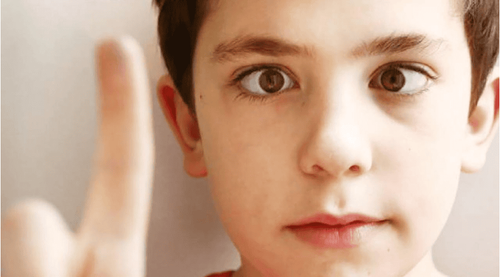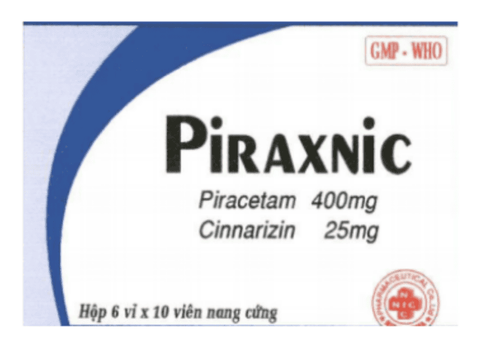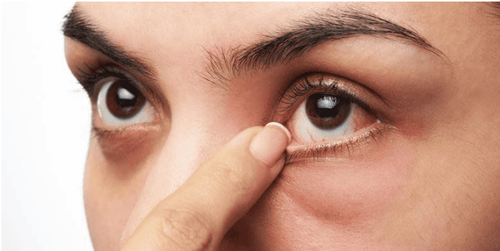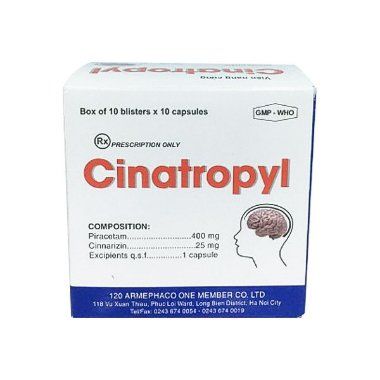This is an automatically translated article.
The article was professionally consulted by an eye doctor - Department of Examination & Internal Medicine - Vinmec Hai Phong International General HospitalNystagmus is an eye condition that is not fixed, causing the patient to lose control. When nystagmus causes the eye to be unable to see an object clearly, affecting the patient's ability to see.
1. What is nystagmus?
Nystagmus refers to repetitive oscillating movements of the eyeball, eyeball movements that can occur in one or both eyes but are not intentional. It can be horizontal, vertical or circular vibrations.Normally to see an object clearly, it needs a combination of 3 main factors. The main factors include:
Positioning of the visual system, Vestibular reflexes, Coordination of nerves such as nerves that regulate eye muscles... If there is an imbalance of these three factors will lead to abnormal movement of the label.
2. Types of nystagmus
Nystagmus is classified into 3 types as follows:2.1 Physiological nystagmus
Physiological nystagmus is the occurrence of nystagmus occurring during the physiological activities of the eye. This condition does not require treatment and usually does not affect vision.2.2 Congenital nystagmus
These are conditions where the appearance of nystagmus occurs before the age of 1 year. This condition can be hereditary, it is usually mild and also does not require treatment and does not cause any complications. However, there are some cases that can make it difficult to see from mild to severe, requiring corrective measures.
Rung giật nhãn cầu bẩm sinh thường không gây ra bất kỳ biến chứng nào
2.3 Acquired nystagmus
Occurs in people from adolescence to adulthood and is caused by medical causes or an accident that causes trauma to the eye-cranial area. This condition can range from mild to severe, and treatment depends on the specific cause.3. Causes of nystagmus
Possible causes of nystagmus include:Genetic factors Medical diseases: Meniere's disease, multiple sclerosis, cerebral stroke, cerebellar disease, encephalitis, brain angiomas, cerebellar angioma, some inner ear diseases. Brain damaged. Due to the patient's alcoholism, alcohol poisoning, drug use. Use of certain drugs such as lithium, anticonvulsants. Micronutrient deficiency, specifically magnesium deficiency. Up to 50% of cases have no identifiable cause.
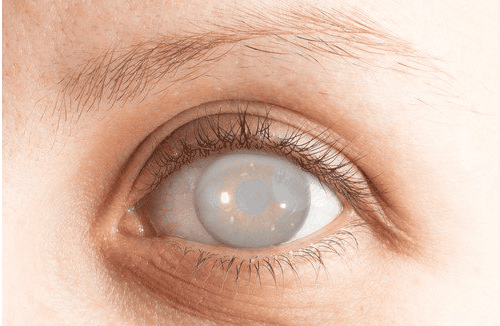
Đục thủy tinh thể có thể gây rung giật nhãn cầu
4. How to treat nystagmus?
4.1 Treatment of congenital nystagmus
Sometimes, congenital nystagmus subsides as the child grows without any treatment. If it does not heal but is mild, some measures can be applied to reduce nystagmus such as:Wear glasses (Do not wear contact lenses because when the eyeball is shaken, rubbing between the glasses and the cornea is easy to damage). cornea) To keep the indoor space open, to avoid disturbing the eyes, and to have enough light in the house. Children can use books with large print, increase the font size in computers and phones. In severe cases that severely affect vision, surgical treatment may be required.
4.2 Treatment of acquired nystagmus
Symptoms of nystagmus have no specific treatment for this condition. However, depending on the specific cause of the disease, applying appropriate treatments can help improve this condition. Treatment methods depending on the cause are applied such as:Stop using alcohol and drugs to significantly improve the disease. If due to poisoning by the treatment drugs, the drug should be changed.Detoxification Treatment Supplementing with necessary micronutrients and nutrients. Improve your diet to meet your nutritional needs. If there is an infection in the eye that needs to be treated thoroughly with medication. Use of eyeglasses. The injection of botulinum toxin into the bladder or into the muscle is carried out to temporarily stop the tremor only in cases of severe visual impairment due to nystagmus, but there are many side effects such as drooping eyelids, double vision and the effects are only temporary.
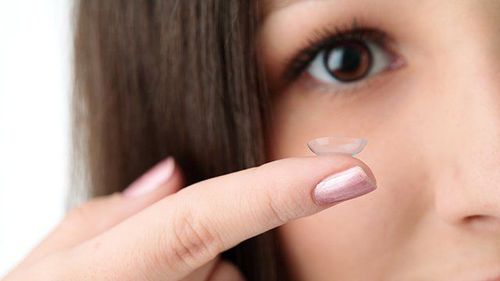
Sử dụng kính áp tròng để điều trị rung giật nhãn cầu mắc phải
4.3 Surgery
Ocular muscle surgery is performed on certain types of nystagmus. Surgery can help reduce the severity of the disease and improve aesthetics, although it can improve vision in patients, but often does not completely eliminate nystagmus.Surgery is indicated in people with severe nystagmus, severely affecting vision.
In general, there is no specific treatment for nystagmus. Depending on the cause, treatment can alleviate the condition. Surgery is indicated in people with serious conditions.
Doctor Duan has over 20 years of experience in the field of ophthalmology. The doctor is highly trained in eye diseases such as non-high pressure glaucoma, retinal detachment, intraocular injection. The doctor was former Vice Dean, Dean, Deputy Director of Military Medical Sub-Institute 7 before he was an ophthalmologist at the Internal Medicine Department - Vinmec Hai Phong International General Hospital as it is today.
Please dial HOTLINE for more information or register for an appointment HERE. Download MyVinmec app to make appointments faster and to manage your bookings easily.




